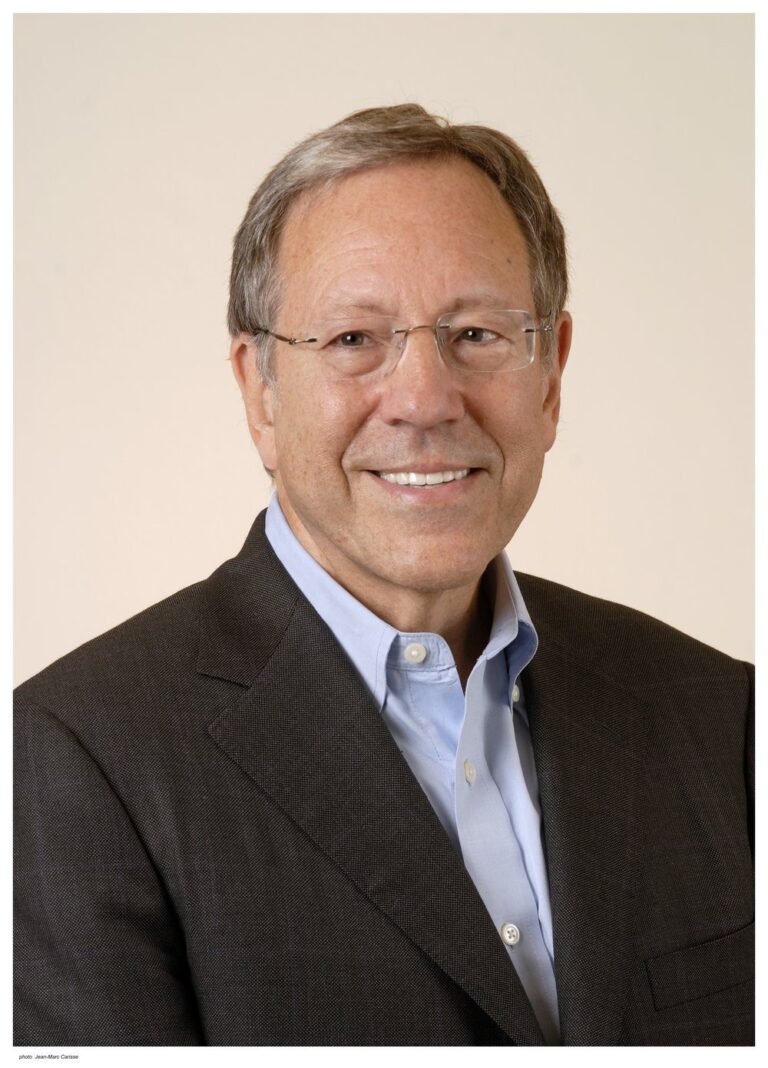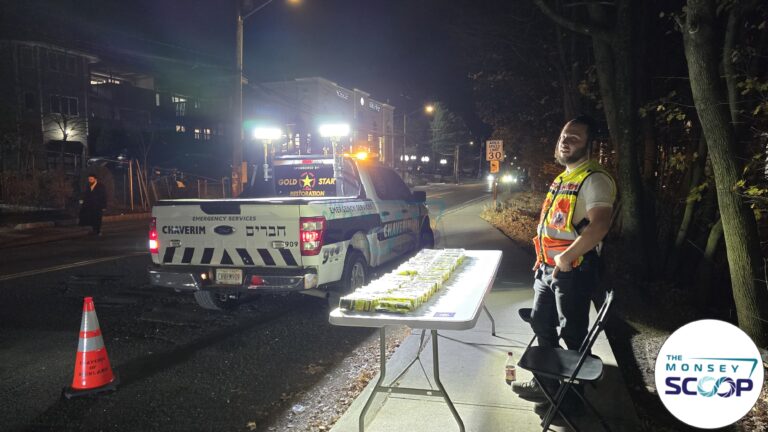 The following article appears in Monday’s Baltimore Sun:
The following article appears in Monday’s Baltimore Sun:
At 10 p.m. on a Monday in Northwest Baltimore, more than 20 Orthodox Jewish men are packed into a two-room apartment with a couch and maps of the nearby synagogues, eating kosher chili and discussing how to respond to the next neighborhood emergency.
Those gathered here are members of Shomrim, Hebrew for “watchers,” and they make up a round-the-clock citizens patrol, complete with matching jackets, radios and a hot-line number that area residents know as well as 911. Members have intervened in suicide attempts, divided the neighborhood into quadrants and fanned out to look for missing people, thwarted bicycle thefts and saturated areas hit by burglaries to report suspicious people to police.
“They’re an invaluable service to the district,” said Maj. Johnny Delgado, commander of Baltimore’s Northwest District. “There’s not a day that goes by that we’re not in contact about something.”
Here’s how serious Shomrim members are: Last year they brought a playbook to an informal game of flag football with a group of district police officers and won, 40-13. This year’s rematch, a fundraiser at Northwestern High School earlier this month, raised $21,000 for the Police Department’s mounted unit and was attended by Mayor Sheila Dixon and Police Commissioner Frederick H. Bealefeld III.
The group, which counts among its members a lawyer, an auto mechanic, a pharmacist, a jeweler, a psychologist, a salesman, a roofer and an accountant, started in late 2005 after a rash of burglaries in the city’s Orthodox community around Upper Park Heights and Greenspring. Several men, including business owners, decided to start patrolling the streets in the early morning hours.
“We had guys out from midnight to 4 pretty much every night, with the concept that anybody out on the street between then is a possible suspect or victim,” said Ron Rosenbluth, one of the founding members and owner of Tov Pizza, a kosher pizza place on Reisterstown Road. “And we got lucky in the first couple days to catch one of the burglars.”
Service to the community is an important part of Judaism, and Shomrim is not alone in supplementing city services in Northwest Baltimore. Hatzalah, an all-volunteer ambulance service that responds until Baltimore EMS resources arrive to take over patient care, handled more than 700 calls in 2008. There’s also Chaverim, a volunteer road service that changes flat tires, provides jump-starts and responds when community members lock their keys in a car. Chaverim’s Web site claims more than 3,000 calls annually.
“We have an underlying principle within our religion that all Jews are responsible for one another,” said Erika Pardes Schon, president of the Baltimore Hebrew Institute at Towson University. “That is the core philosophy for why we make sure we have organizations and institutions in place that take care of people within our communities.”
Most of Shomrim’s members are Orthodox Jews, but they respond to incidents involving different pockets of the community. There is currently one non-Jewish member, who is black.
“When we get a call, we don’t ask what color, creed or faith. We go,” said Phil Jacobs, a Shomrim member who is executive editor of the Jewish Times and has written about the group’s efforts.
On a recent night, they sat on chairs set up in every available corner of the small unit donated to them by the Park Heights apartment complex owner. In a side room are stolen bikes they have confiscated from thieves, and a donated color copy machine to make fliers of missing people.
Rosenbluth called the meeting to order, using a gavel. He read a handwritten letter from an Israeli man who was believed missing and was tracked down by Shomrim members. In the letter, the man thanked them for giving up their “entire Shabbos on my behalf,” referring to the weekly Jewish holy day.
“This is the beginning of a protocol that we have to stay on,” Rosenbluth tells his members, waving a chart showing the procedures for finding missing people. “We’re going to need everybody’s help.”
Northwest Baltimore already had a robust neighborhood watch group that did patrols, so the founders decided that Shomrim might best serve the community if it was call-driven. They stressed that residents should call 911 first – but then call Shomrim. Sometimes people turn to them first.
“We’ll get there faster than police because it’s our neighborhood,” said Nathan Willner, an attorney and board member. “We can create a perimeter and get 10 units there, in private cars, so the suspect doesn’t know they’re being watched. That’s invaluable information that can make all the difference in police being able to get there and catch a suspect.”
Nevo Zuckerman, a 31-year-old rabbi at the Yeshivat Rambam school, is one of Shomrim’s newest members. He said he saw Shomrim at work in the community and wanted to join. And, he admits with a smile, after serving in the Israeli army for nine months, he “missed the action.”
Shomrim members acknowledge that there are potential hazards in their eagerness to get involved in potentially dangerous situations. But Shomrim requires a probationary period, provides training, and has strict internal disciplinary procedures. Its members seek to serve as eyes and ears, and rarely take action. In the past, members have been dismissed for not following protocols.
“This is not ‘Starsky and Hutch,’ ” Jacobs said. “We’re regular citizens who believe in the safety and integrity of our neighborhood, and we believe in our police department. We’re augmenting that.”
In addition to working with city police, Shomrim has interacted with Baltimore County police, though on a more limited basis.
“We usually ask for their assistance in specific cases,” said Bill Toohey, a former county police spokesman, during an interview last month. “Given their discipline and organization, they can fan out and help us find them. … These kinds of groups supplement the police – they do not replace the police.”
Delgado, who joined the city’s Northwest District in 2007 after a long career in East Baltimore, said he has never seen a citizen group as active as Shomrim. When he first learned of the group, he was taken aback.
“They had jackets, unit numbers. They knew about police call signs, and how we code complaints. They knew everything from top to bottom,” said Delgado. “I said, ‘What the heck?’ I thought something was weird.”
But Delgado said the group quickly won him over. With the Police Department devoting renewed energy to developing community partnerships and asking neighborhood residents to play a bigger part in their communities, Shomrim represents the gold standard.
“With a group that motivated, you’ve got to utilize them,” Delgado said.
(Source: Baltimore Sun)











5 Responses
Beautiful! Sounds like a Kiddush HaShem!
Great article! On a small note the title “written up” sounds derogatory while this article is quite the opposite, when I saw the title I’m like oh no not another bad story.
Very nice Keep the good work…
From one Shomrim brother to another, continued hatzlachah!!
These are some very special men who, from the article, have done great work. A footnote of intrigue is they beat the local police in flag football. It’s not that easy to know how to run and offense and defense against police officers who are very physically adept and in almost all cases, former school athletes with years of formal sports experience.